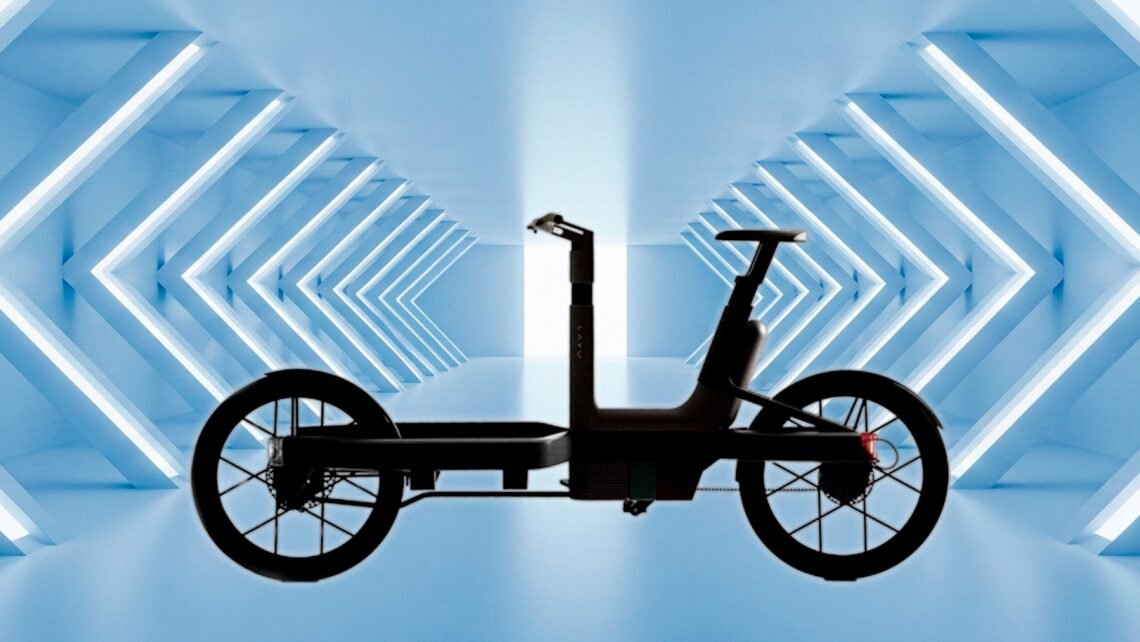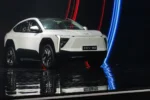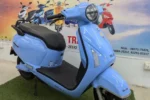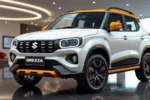Could hydrogen-powered bikes be the future of sustainable two-wheeler transportation? As the global movement to reduce carbon footprints gains momentum, innovations like the Boon H2 are beginning to turn heads, especially as they offer an alternative to traditional battery-powered electric bikes (e-bikes). Created by Irish startup HubUR, the Boon H2 represents a bold leap forward by using hydrogen fuel cells instead of lithium-ion batteries, potentially transforming the landscape of eco-friendly transportation. Let’s explore the potential of this groundbreaking hydrogen-powered bike.
Hydrogen-Powered Bikes
While e-bikes have long been a popular choice for environmentally conscious commuters, they have their drawbacks. Battery charging times, environmental concerns over lithium extraction, and limited range are common complaints from e-bike owners. In an effort to overcome these challenges, HubUR has introduced the Boon H2, a hydrogen-powered alternative that may change the way we think about sustainable two-wheelers.
Boon H2: How It Works
The Boon H2 utilizes a hydrogen fuel cell system, where hydrogen stored in removable cartridges (weighing just 20 grams) is converted into electricity to power the bike’s electric assist motor. What makes this system stand out is that it doesn’t rely on traditional charging infrastructure or lithium batteries. Instead, the hydrogen cartridges can be swapped out easily, allowing riders to extend their range without needing to plug into a charging station.
The bike’s range per cartridge is about 50 km, which is impressive for daily commutes. For longer trips, riders can carry extra cartridges, essentially removing the need for a lengthy stop at a hydrogen refueling station.
The Hydrogen Edge
A significant feature of the Boon H2 is its home electrolyzer. This device uses water and electricity to produce hydrogen at home, which can then be used to refuel the bike. This self-sufficiency eliminates one of the biggest hurdles associated with hydrogen vehicles: the lack of refueling infrastructure. By creating hydrogen on-demand, Boon H2 gives users the ability to refuel anywhere, as long as they have access to water and electricity.
This feature could make the Boon H2 particularly attractive to users in regions where refueling stations are sparse or non-existent. With the added benefit of reusable hydrogen cartridges—which can be cleaned, refilled, and swapped out—the bike addresses many of the pain points traditionally associated with both e-bikes and hydrogen-powered vehicles.
A Bike Designed for Everyday Use
Weighing only 25 kg and featuring 26-inch wheels, the Boon H2 is designed with urban riders in mind, making it lightweight, easy to maneuver, and well-suited for city environments. The bike also integrates some familiar features from traditional bicycles, like the Shimano Tourney derailleur for smooth gear shifts and an LCD screen for better control and convenience.
What’s particularly noteworthy is the Boon H2’s hydrogen generator, which eliminates the need for reliance on external charging grids or hydrogen stations, making it much more practical for everyday use. Whether for urban commuting or longer rides, the Boon H2 offers a sustainable, convenient alternative to both electric and gas-powered vehicles.
The Boon H2’s Price Tag
At €6,000 (approximately $6,500), the Boon H2 is positioned as a high-end, futuristic bike. While this may seem like a hefty price, it’s important to consider the unique advantages it offers: no need for regular charging, reusable cartridges, and self-sufficiency in hydrogen production. For early adopters and eco-conscious riders, this could be an attractive investment for a more sustainable lifestyle, and the price tag is a reflection of the innovative technology behind it.
The Future of Hydrogen in Two-Wheelers
The Boon H2 is a bold step towards reimagining hydrogen’s role in the transportation sector. While the focus has traditionally been on hydrogen-powered cars, HubUR is proving that two-wheelers can also benefit from this technology. The introduction of the Boon H2 could inspire other manufacturers to explore hydrogen solutions, potentially making this a larger trend in the coming years.
As electric bikes continue to dominate the green transportation market, innovations like the Boon H2 could shift the focus away from e-bikes to hydrogen-powered alternatives, especially if challenges around battery disposal and range anxiety continue to persist in the electric bike space. This shift could open the door to new possibilities for sustainable transportation and push automakers, including high-performance brands like Ferrari, to reconsider their own hydrogen-powered ventures.
The Boon H2 is an exciting glimpse into the future of two-wheeled transport. By addressing the limitations of traditional e-bikes and hydrogen vehicles, HubUR’s hydrogen-powered bike is positioning itself as a potential game-changer in the world of eco-friendly transportation. With its self-sustaining hydrogen generation system, long-range potential, and convenience, it could be the start of a larger movement that propels hydrogen-powered two-wheelers into the mainstream.
If hydrogen continues to evolve as a viable fuel alternative, we could be witnessing a significant shift away from battery-powered bikes, with innovations like the Boon H2 leading the way.
FAQs
What makes the Boon H2 different from traditional e-bikes?
The Boon H2 uses hydrogen fuel cells instead of lithium batteries, making it more sustainable and offering a longer range without the need for frequent charging.
How does the Boon H2 produce hydrogen?
The bike comes with a home electrolyzer that produces hydrogen by using water and electricity, allowing riders to refuel at home without relying on external hydrogen stations.
What is the range of the Boon H2?
The Boon H2 can travel 50 km per hydrogen cartridge, and additional cartridges can extend the range further.
How much does the Boon H2 cost?
The Boon H2 is priced at €6,000 (approximately $6,500), reflecting its cutting-edge hydrogen technology.
Can the Boon H2 replace e-bikes in the future?
While it’s still early, the Boon H2’s unique features, such as self-generation of hydrogen and refuelable cartridges, could make it a viable alternative to e-bikes in the future.




